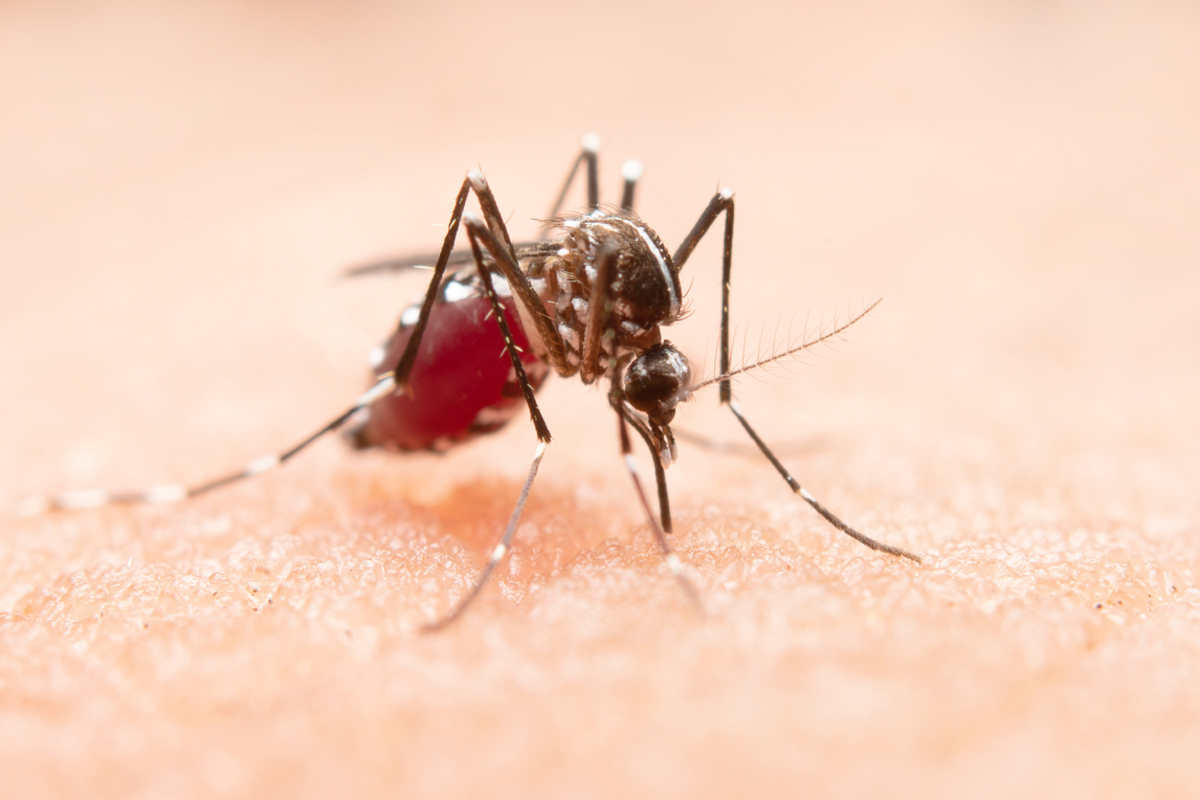West Nile fever is a viral disease that affects a shocking number of different species — including humans — and it's transmitted by mosquitos.
Because mosquitos (unfortunately!) live almost everywhere, outbreaks of West Nile fever have been reported around the world. The most commonly struck areas are Africa, Europe, the Middle East, North America and West Asia.
The bad news is that there is neither a vaccine for this disease, nor a specific anti-viral treatment. Have you been bitten by a mosquito lately? Have you been feeling under the weather? Maybe you should see a doctor, because you might just have contracted West Nile fever.

What are the symptoms of West Nile fever?
About 80 percent of infected people don't get any symptoms. In 20 percent of cases, the symptoms include:
- Headache
- Tiredness
- Nausea
- Fever
- Vomiting
- Body ache
- Swollen lymph nodes
How is West Nile virus spread?
To understand what we can do to prevent this disease, we must first discuss the ways in which the virus is spread. The virus cannot be transmitted directly via human-to-human contact. The virus can be spread through blood transfusions, organ transplants, via breast ilk or from mother to child during pregnancy, but these ways of transmission are very rare.
The most important way in which the disease is transmitted is via mosquito bites.
Mosquitoes get infected by feeding on infected bird blood. A few days after the ingestion of this infected blood, the virus moves to the mosquito's salivary glands. When the insect bites the the next host, it injects the virus into their bloodstream, possibly causing infection.
Humans and horses are so-called "dead-end hosts". This means that infected individuals can't be a source of infection for new mosquitoes, and cannot spread the disease in that way. One of the ways the virus is spread around the globe is through migrating birds. When an infected bird migrates, the mosquitoes in that area can become infected by feeding on their blood and then spread the disease.
How can we prevent West Nile fever?
Reducing the number of mosquitoes
There are a number of ways to reduce the number of mosquitoes. Many countries have means to regulate the number of these insects. Chemicals, such as pesticides, are often used to kill both larvae and adults, but there are other ways, too. Draining puddles, swampy areas, or removing old tires and plastic waste eliminates mosquito breeding grounds.
Biocontrol can also be used to manage the number of mosquitoes. Many species of fish feed on mosquito larvae, and can be used to reduce the number of larvae, but introducing a new species into an ecosystem can have devastating consequences. Dragonflies feed on mosquitoes, as well as several species of lizards, birds, and bats.
Microorganisms can be used as a way of control too, as several species of bacteria and fungi can infect and kill mosquito larvae. The use of GMO mosquito males is a way in which the mosquito population can be controlled reduced, without messing with the rest of the ecosystem.
Releasing a bunch of sterile males into the population lowers the numbers of impregnated females, and thereby the number of larvae. There is also a strain of male mosquitoes whose offspring need tetracycline to develop in the larval stage. Since there is no tetracycline in nature, the larvae are not able to develop.
Traps can also be set, for both larvae and adult mosquitoes.
Reducing the risk of being bitten by a mosquito
A number of means can be used to reduce the risk of being bitten by a mosquito. Insect repellents are the most popular, and the most widespread method. It is also recommended to wear long sleeves, trousers, hats, and generally speaking, any clothing that protects your skin. Although fabric usually doesn't completely protect against mosquito bites, it does make it harder for the insect to bite you, and a repellent can be applied on the clothing too. Most mosquitoes are primarily active during dawn and dusk, so it is recommended to stay inside at these times. Mosquito netting can be used on a bed, to protect yourself from being bitten during sleep.
You can also do your share to reduce the number of mosquitoes by eliminating old tires, barrels, plastic bottles, or any types of vessels that can hold a body of water, where the insects could breed. Covering garbage cans, cleaning the gutter and maintaining your pool, if you have one, are also effective ways of eliminating the larvae. Some plants, like marigold, lavender or basil, are known to repel mosquitoes, so planting them in your garden can be a way of reducing the risk of being bitten.
- Photo courtesy of SteadyHealth


Your thoughts on this